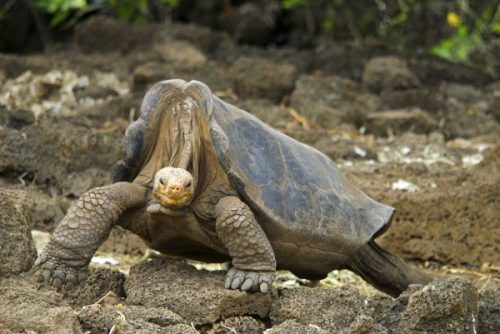Increased Tourism in the Galapagos Islands Projected this 2018
The Galapagos Islands is home to thousands of unique species only found in the archipelago. With responsible tourism, not only will the animals of the country be protected, the people will also prosper.

Quito, Ecuador – February 2, 2018 /PressCable/ —
Unique in landscape and important for its biodiversity, the Galapagos Islands is hailed one of UNESCO’s World Heritage. The archipelago not only boasts of breathtaking islands– vast and diverse; from deserts to rain forests– it is also one of the most significant biological centers in the world. With all that the archipelago has to offer, it is no wonder the Galapagos Islands get more and more tourists visiting each year. Despite its benefits to the group of islands’ economy, experts worry that the increased number of visitors might bring danger to the biodiversity of the place.
The Galapagos Islands, located 1000 miles off the coast lines of Ecuador, is an archipelago formed by multiple volcanic eruptions around four to five million years ago. To date, the archipelago is still considered one of the world’s most active volcano groups. In the last 200 years, the group of islands has experienced more than 60 volcanic eruptions.
Partly because of its natural conditions, the Galapagos Islands climate is somewhat different. According to Gulliver Expeditions, a travel and tourism expert in the islands, “The Galapagos islands have two seasons: the ’warm’ or ‘wet’ season from January until the start of May and the ’cool’ and ‘dry’ season from May to December.”
What makes the archipelago even more interesting is how unique each and every island is. Some are just small deserts while others, forests and mountains or mangroves and beaches. Furthermore, what sets the island apart from many places in the world– and one of the reasons UNESCO chose the archipelago as a world heritage– is its biodiversity.
Gulliver Expeditions explains that what makes the islands’ biodiversity interesting is that “the animal living on the Galapagos Islands are truly unique, in a sense that 97% of the reptiles and land mammals and about 80% of the land birds cannot be found anywhere else.”
Because of the high number of endemic (unique) species found in the Galapagos Islands, it has become quite an important area for biologists. In fact, one of the most popular and revolutionary environmental scientist, Charles Darwin credits much of his breakthrough discoveries to the islands, which in turn also resulted to the increased popularity of the archipelago.
Tourism is one of the driving forces of the archipelago’s economy. In fact, tourism supplies both monetary needs for the population as well as employment bringing in around US$143 million a year through tourism. In 2018, projections claim that it wull increase even more following global trends in tourism which will boost the economy of the region.
However, on one hand, many experts still warn caution when it comes to accommodating too many tourists. The biodiversity and habitat of the species residing in the islands can easily be disrupted if not monitored and regulated. In fact, human threat is one of the major reasons for the decline in the population of species in the country
On the other hand, tourism if done right, is highly beneficial to the conservation of the national parks and conservation projects. For one, taxes for tourists make it so that the projects are funded and the important biodiversity areas are protected.
Furthermore, responsible travel and tour agencies promote ecotourism in order to best avoid any harmful impact to the wildlife and marine life of the region.
Interested tourists can also do their part before visiting the country. One of the things travellers are encouraged to do beforehand is to read up about the archipelago– from the Galapagos Islands history, general information and the do’s and don’ts when visiting. By doing so, tourists get a better grip about what to expect and their impact to the region.
The Galapagos Islands is a beautiful destination filled with unique natural wonders. Tourism can either be beneficial to both the people and the animals or destructive. Choosing the right tourism agencies, educating oneself and respecting the biodiversity of the archipelago will help preserve the UNESCO World Heritage site that is home to thousands and thousands of unique species that cannot be found anywhere else in the world.
Contact Info:
Name: Andres Paez
Organization: Gulliver Expeditions Company
Address: 738 Mariscal Foch , Quito, Pichincha 170143, Ecuador
For more information, please visit https://gulliver.com.ec/
Source: PressCable
Release ID: 295090